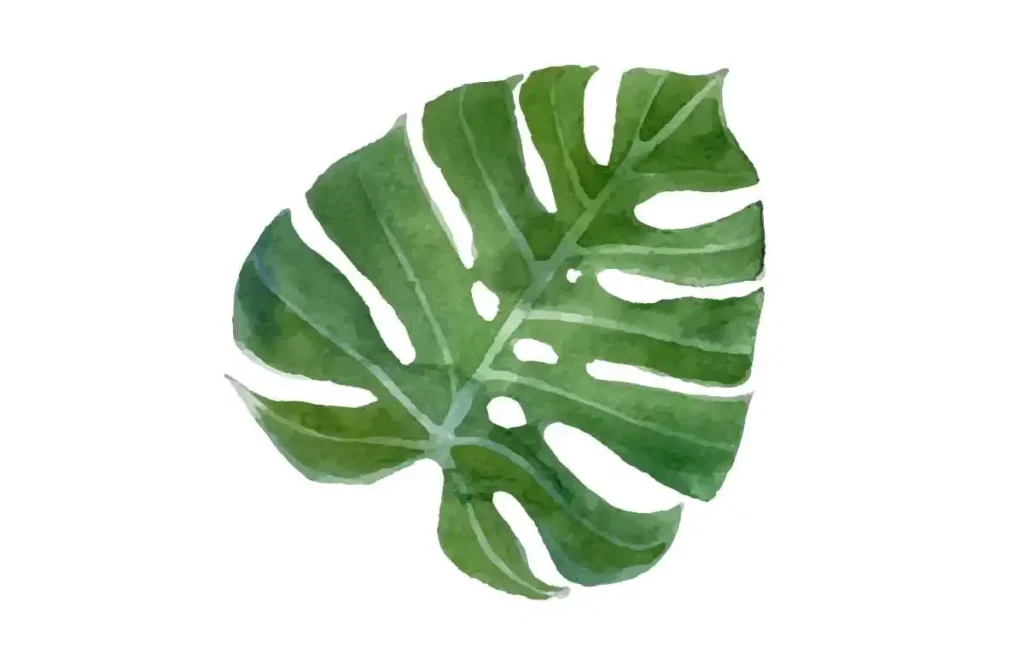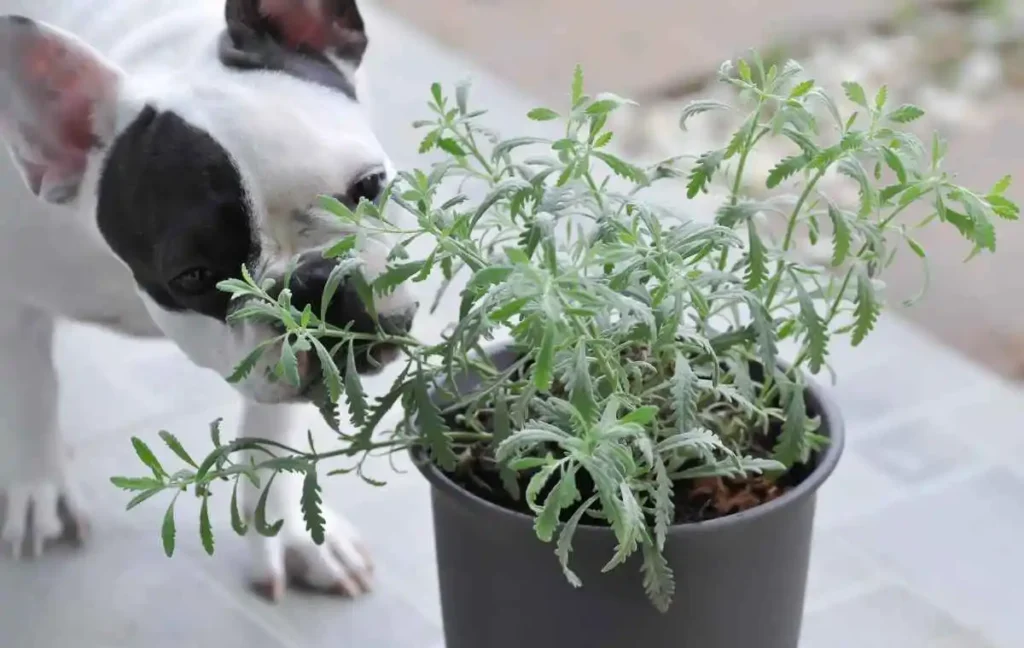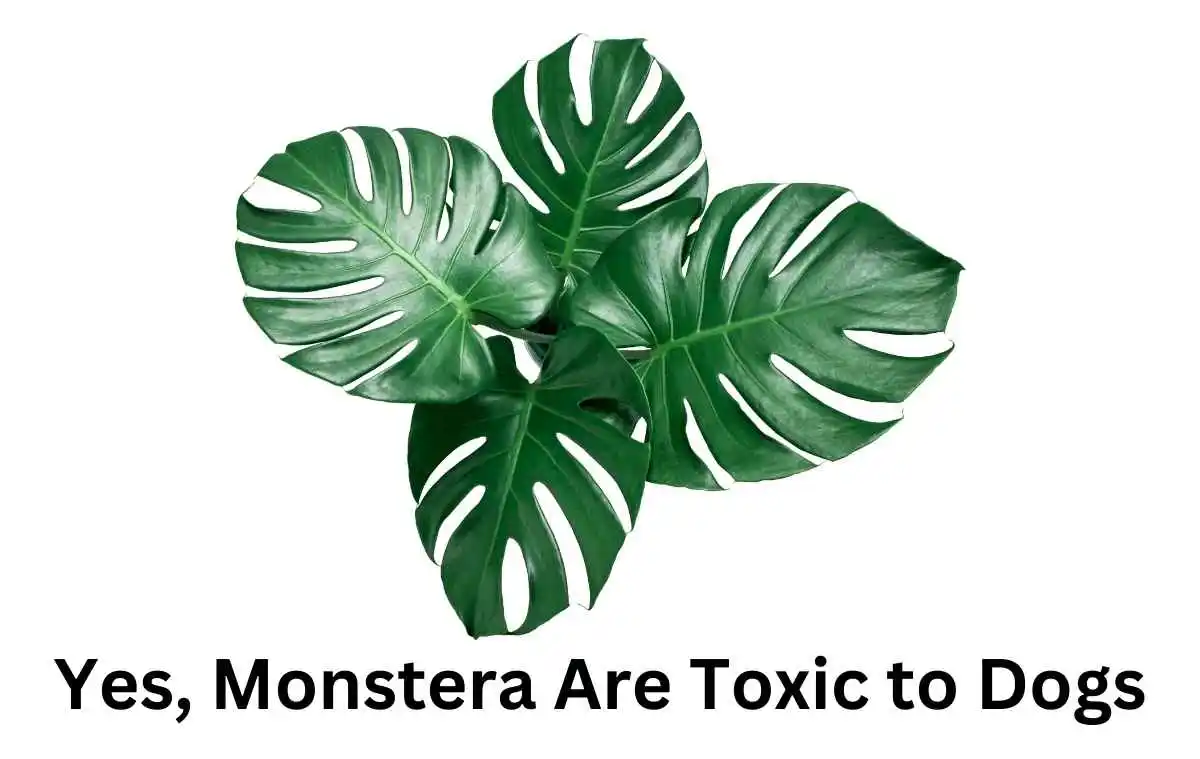Yes, Monsteras toxic to dogs. Monstera is toxic for dogs of all ages but usually not fetal even when ingested. The material inside stems may irritate your dog’s. Every parts of this plant, are toxic to dogs, cats, and humans as well.
This plant main toxicity are calcium oxalate crystals. Symptoms caused by eating Monsteras plant are mouth irritation, vomiting, throat infection, difficulty in swallowing. Visit your veterinarian if you see your dog are showing any of these signs.
Try to keep Monstera plant out of reach from your dog and also notice your dog when it is near the plant.
My dog ate Monstera plant | What to do
If your dogs are medium and large and take small bite of the plant without showing any symptoms, you can just monitor your dog. But, If your dog is small and eat large amount of the plant, then you should contact your veterinarian as soon as possible. Signs of Monsteras ingestion are generally immediate but sometimes can take up to 2 hours to appear.
If your dog eat a tiny amount of plant and showing no signs, then you can just monitor for a day . If however, your dog ate a whole leaf , then you should contact your veterinarian for an emergency appointment, even if they’re not showing any obvious signs yet.
Are Monstera Toxic to Dogs
Yes, Monstera are Toxic to Dogs, but they’re not deadly unless consumed in large quantities. Your dog’s life isn’t at immediate risk. As the You also notice your dog drooling in response to the burning sensation they are feeling. While there is no established toxic dose.
You should contact the veterinarian if your dog is showing any sign of irritation. Do not forget to bring some plants or a photo to show your veterinarian so that they can exactly find what’s causing your dogs signs.
Could monsteras kill my dog?
Its very unlikely that a Monstera plant kill your dog. Monsteras toxic to dogs, but the symptoms the monsteras cause are basically not Life Threatening. Monsteras contain calcium-oxalate crystals, which can irritate your dogs. In rearly cases, if a dog eat a large amount of the plant, it could cause more serious issues, but fatalities are mostly rare.
It is best to keep toxic plants like Monsteras away from dogs. If your dog eat Monstera, it’s important to watch for symptoms and contact a vet if you’re concerned, but with prompt care, most dogs recover without serious complications.
Which parts of monstera are harmful to Dogs?

The whole Monstera plant harmful to dogs, but the most toxic parts are the leaves and stems. These plant parts contain calcium- oxalate crystals, which can cause dogs discomfort when eat.
When your dog eats any of the plant parts, these crystals enter into their mouth, leading symptoms like difficulty swallowing, vomiting, and sometimes even swelling. The roots can also contain these harmful crystals, but dogs are less likely to eat them.
To keep your dog safe, its best to place your Monstera in an area where dogs remains out of reach, especially if your dog is known to chew on plants.
Symptoms of monstera toxicity in dogs
- If your dogs consumed part of Monstera plant, you may notice symptoms. Common symptoms include:
- Dogs often show irritation in their mouth. You see your dog licking paws. Their lips and mouth become red due to irritation caused by eating monsteras plants.
- Vomiting is a common response to taken of Monstera. This happened shortly after when dog eating Monsteras plant. Some dogs may also experience gastrointestinal upset, leading to diarrhea.
- The irritation caused dur to eating crystals can result in difficulty swallowing. Your dog also shows restless as they try to relieve the discomfort. In some cases, you might notice swelling in the mouth or throat, which can make it difficult for your dog to breathing or eat. This could be particularly concerning if the swelling is severe.
How to keep dogs away from houseplants

Apply a pet-safe repellent
A simple way to pet proof your indoor plants is to apply some repellent on the plant’s leaves or soil. Dogs tend to turn their nose up at the smell of citrus, So you can try laying lemon or orange peels on the soil in your plant. Alternatively, you can use solution to spray on the plant leaves out of lemon juice; Also, remember that citrus oil extracts (like those used in bug spray or essential oils) are severely toxic to dogs and should never be used in your home.
Get them out of paw’s reach
One of the most effective way to get them to stay away from your plants is: by putting them somewhere they can’t reach. If you have enough space available, you should designate a ‘plant room’ where your pets cannot enter. Having one plant room is not our favorite solution because you want to be able to display your plants throughout your home and not just in one room.
Cover your Monstera plant soil
If your pets try to dig up the dirt to play try covering the soil. You can cover your plant’s soil with things like pinecones, seashells, or even burlap. This idea is to use a material that will still allow water through but will feel uncomfortable on their dogs paws and deter digging is best for dogs.
Redirect the digging impulses
Dogs usually get digging such as : it can be due to separation anxiety. Try to give your dog all of the exercise and stimulation they require to redirect that digging energy away from your plants. We are not dog trainers, but we see some success in providing dogs with a designated digging spot in the backyard.
Conclusion
In conclusion, Monsteras plants are not fatal or life threating for dogs but these plants are toxic due to presence of calcium oxalate crystals in parts of these plants. Symptoms caused by eating Monsteras plant are mouth irritation, vomiting, throat infection, difficulty in swallowing.
To keep your dog safe, its best to place your Monstera in an area where dogs remains out of reach, especially if your dog is known to chew on plants. Visit your veterinarian if you see your dog are showing any of these signs. Try to keep Monstera plant out of reach from your dog and also notice your dog when it is near the plant.
Fortunately, with proper veterinary attention, most dogs recover from Monstera poisoning without long-term effects. Overall, while Monsteras can add beauty to your home, they must be handled with care if you have pets.
